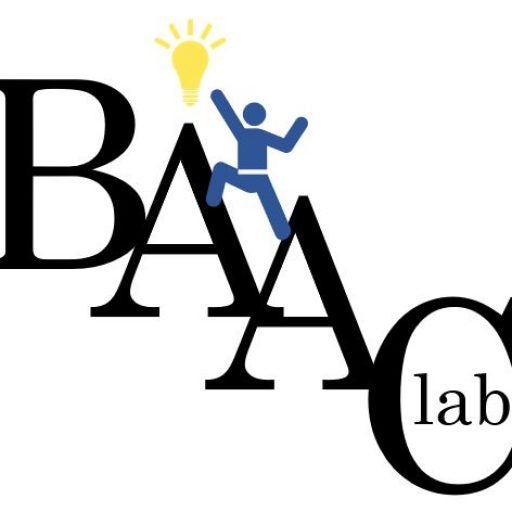Our Mission
The mission of the Basic and Applied Cognition Lab is to conduct high quality research and train researchers in cognitive and educational sciences that also have the potential for social good. The Basic and Applied Cognition Lab fosters an environment of diversity, equity, and inclusion.
While historically cognitive science has been dominated by white males, the BAAC Lab encourages the participation of students in cognitive science regardless of their race, ethnicity, sexual orientation, age, socioeconomic status, religion, or gender identity. We aim to recruit graduate students, undergraduate research assistants, and research staff of different backgrounds as we believe that the input of multiple perspectives allows for a rich academic environment.
Service
Dr. Priti Shah founded the STAR (Students Tackling Advanced Research) Scholars program at University of Michigan – an organization devoted to teaching underrepresented undergraduate students in the psychology department the skills they need to acquire research positions and apply to graduate school. A paper describing this program, with links to resources, is in press at Teaching of Psychology.
She also participates in UM and professional society DEI initiatives, such as UROP & SROP, UM Advance, Women in Cognitive Science mentoring programs, and SPARK Society mentoring programs. She is currently a member of the STRIDE (Strategies and Tactics for Recruiting to Improve Diversity and Excellence) committee, which designs and implements faculty recruitment workshops for faculty members, staff, and administrators at the University of Michigan. She has a long history of mentoring underrepresented and first generation PhD and undergraduate students. Finally she participates in many professional volunteer activities, such as providing free professional development for low-income schools.
Most of the members of the lab are also active in social and community service activities, and we support one another in these endeavors.
Research
We select research questions that are scientifically interesting and have the potential for social good. Current projects focus on improving educational outcomes and educational experiences for children, especially from under-resourced backgrounds; improving critical thinking and science evidence evaluation; improving science text comprehension; and reducing cognitive declines associated with aging.
Our research with underrepresented or vulnerable populations includes examining how socioeconomic context affects the effectiveness of cognitive interventions, understanding the implications of mathematics anxiety and test anxiety mathematics achievement, improving attention and motivation in children with ADHD, demonstrating the socio contextual factors associated with delay of gratification, explaining racial biases in ADHD versus ODD diagnosis, demonstrating biases in ability versus effort attributions in academic success of students from different backgrounds, and conducting cognitive training in older adults.
Currently, Dr. Shah is collaborating with a team of cognitive and educational scientists and developers to design a new 6th grade math curriculum for low SES students centering equity and belongingness. More information about this project, funded by the New Schools Venture Fund, can be found at www.sparkmath.org.
Selected Publications
Posilico, C., Stillwell, S., Quigley, J., Carr, C., Chadwick, S., Lustig, C., & Shah, P. (in press). Extending the Reach of the STARS (Students Tackling Advanced Research and Scholarship). Teaching of Psychology.
Moffett, L., Flannagan, C., & Shah, P. (in press). Rational decision-making the marshmallow task: An extension study. Journal of Experimental Child Psychology.
Jaeggi, S. J., Buschkuehl, M., Parlett-Pelleriti, C., Moon, S. M., Evans, M., Kirzmacher, A., Reuter-Lorenz, P., Shah, P., Jonides, J. (2019). Investigating the effects of spacing on working memory training outcome – a randomized controlled multi-site trial in older adults. Journal of Gerontology: Psychological Sciences.
Katz, B., & Shah, P. (2017). The role of child socioeconomic status in cognitive training outcome. Journal of Applied Developmental Psychology, 53, 139-150.
Boduroglu, A. & Shah, P. (2017). Cultural differences in attentional breadth and resolution. Culture and Cognition, 5, 169-181.
Boduroglu, A., Shah, P., & Nisbett, D. (2009). Cross-cultural differences in contextual processing in visuospatial short-term memory. Journal of Cross-Cultural Psychology, 40, 349-360
Wang, Z., & Shah, P. (2014). The effect of pressure on high- and low- working-memory students: An elaboration of the choking under pressure hypothesis. British Journal of Educational Psychology, 84, 226-238.
Hupfeld, K., Abagis, T., & Shah, P. (2019). “Living in the zone:” Hyperfocus in adult ADHD. ADHD Attention Deficit Hyperactivity Disorders, 1-18.
Jones, M., Katz, B., Buschkuehl, M., Jaeggi, S. M., & Shah, P. (2018). Exploring Cognitive Training for Children and Adolescents with ADHD. Journal of Attention Disorders.
Current and Prior Grant Support
- Spark Math, New School Venture Fund, Co-Investigator.
- Working Memory Training in Older Adults, National Institute of Aging, Co-Investigator
- General and specific training of executive function in older adults, Principal Investigator
- Task-switching training and transfer in older adults and younger adults, Principal Investigator
- Combined Cognitive and Motivational Interventions for ADHD Children: Achievement and Classroom Behavior Outcomes, Institute for Educational Sciences, US Department of Education, Principal Investigator
- Transcranial Direct Current Stimulation Intervention for ADHD, Co-Investigator
- Training working memory and executive control in ADHD children. Institute for Educational Sciences, US Department of Education, Principal Investigator



